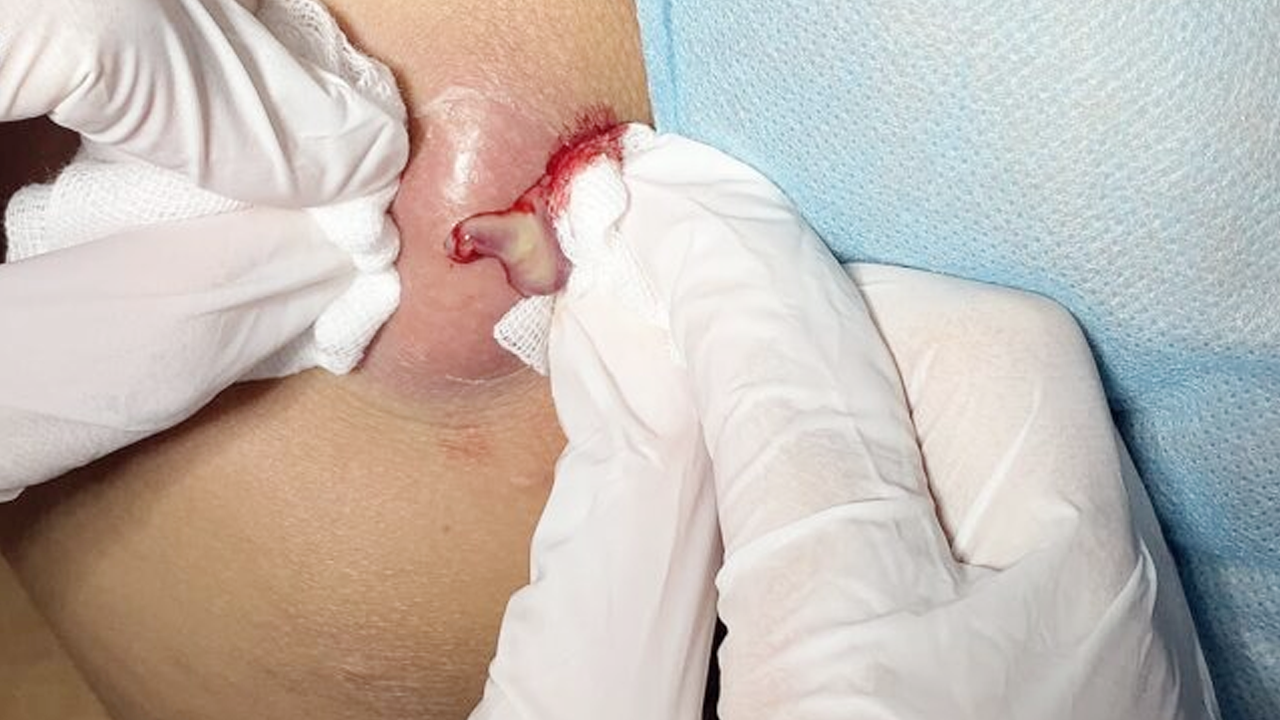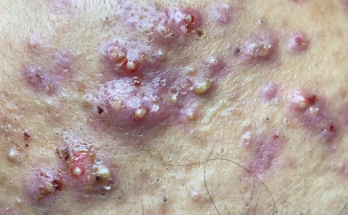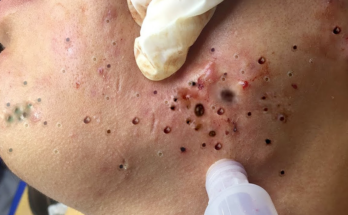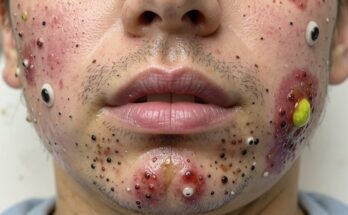Understanding and Tackling Cystic Acne: A Comprehensive Guide
Cystic acne, a severe form of acne, presents a unique challenge due to its deep-seated inflammation and potential for scarring. Unlike superficial pimples, cystic acne manifests as large, painful, and often intensely red bumps beneath the skin’s surface. This comprehensive guide will explore the causes, effective treatments, and preventative measures for managing this frustrating skin condition.
The Root Causes of Cystic Acne
The development of cystic acne is a multi-faceted process, stemming from a confluence of factors that contribute to the inflammation deep within the skin.
Blocked Pores and Bacterial Infection:
At the heart of cystic acne lies the blockage of pores. Excess sebum (oil) produced by overactive oil glands combines with dead skin cells, creating a breeding ground for Propionibacterium acnes bacteria. This bacterial infection triggers a significant inflammatory response, leading to the characteristic deep, painful cysts.
Hormonal Influences:
Fluctuations in hormone levels play a crucial role. Androgens, hormones that increase during puberty, menstruation, pregnancy, and conditions like polycystic ovary syndrome (PCOS), stimulate sebum production, exacerbating pore blockages.
Genetic Predisposition:
A family history of acne significantly increases your risk of developing cystic acne. Genetic factors influence sebum production, pore size, and the inflammatory response to bacterial infection.
Lifestyle Factors:
While not a primary cause, lifestyle choices can influence acne severity. Stress, diet (particularly high-glycemic foods and dairy), and improper skincare practices can all contribute to worsening symptoms.
Effective Treatment Strategies for Cystic Acne
Tackling cystic acne requires a multi-pronged approach, combining preventative measures with targeted treatments.
1. Absolutely Avoid Picking or Squeezing:
Resist the urge! Squeezing or picking at cystic acne will only worsen inflammation, spread bacteria to surrounding areas, and drastically increase the risk of permanent scarring.
2. Gentle Cleansing is Key:
Cleanse your face twice daily with a mild, non-comedogenic cleanser. Choose a cleanser formulated to be gentle on the skin while effectively removing excess oil and dirt. Avoid harsh scrubbing, which can further irritate the skin.
3. Topical Treatments: A Powerful Arsenal
Several topical treatments can effectively combat cystic acne.
Benzoyl Peroxide:
A potent antibacterial agent that reduces the P. acnes bacterial population and minimizes inflammation.
Salicylic Acid:
An exfoliant that helps unclog pores and remove dead skin cells, preventing further blockages.
Topical Retinoids (e.g., Adapalene, Tretinoin):
These promote cell turnover, preventing new cysts from forming. While highly effective, retinoids can initially cause irritation.
4. Oral Medications: For More Severe Cases
For moderate to severe cystic acne, oral medications may be necessary. These include:
- Oral Antibiotics: To control bacterial infection and reduce inflammation.
- Oral Contraceptives: To regulate hormone levels in women, often reducing sebum production.
- Isotretinoin (Accutane): A powerful medication reserved for severe cystic acne. It requires strict dermatologist supervision due to potential side effects.
5. Dermatologist Interventions:
For rapid relief and effective management of severe cystic acne, a dermatologist can perform:
- Cortisone Injections: Directly injected into cysts to reduce inflammation and pain, providing rapid relief.
6. Home Remedies: Gentle Support
While not a standalone treatment, some home remedies can offer supportive benefits.
- Ice Compresses: To reduce swelling and pain.
- Spot Treatments: With sulfur or tea tree oil can offer mild anti-inflammatory effects. Use with caution and always patch test first.
Preventing Future Breakouts: Proactive Steps
Preventing future cystic acne breakouts requires a commitment to consistent, healthy skincare practices.
- Maintain a Consistent Skincare Routine: Daily cleansing, exfoliation (in moderation), and moisturizing are essential.
- Use Non-Comedogenic Products: Choose makeup and skincare products labeled “non-comedogenic,” meaning they are less likely to clog pores.
- Manage Stress Levels: Stress can exacerbate acne. Practice stress-reduction techniques like yoga, meditation, or spending time in nature.
- Consider Dietary Modifications: Some individuals find that reducing high-glycemic foods and dairy products helps improve their acne.
- Protect Your Skin: Use a broad-spectrum sunscreen daily to protect healing skin from sun damage.
When to Seek Professional Help
If cystic acne persists or worsens despite home treatments, or if you’re experiencing significant distress, consult a dermatologist. They can diagnose the underlying cause, recommend appropriate treatments, and offer advanced procedures like chemical peels or laser therapy to minimize scarring and effectively manage severe acne.



